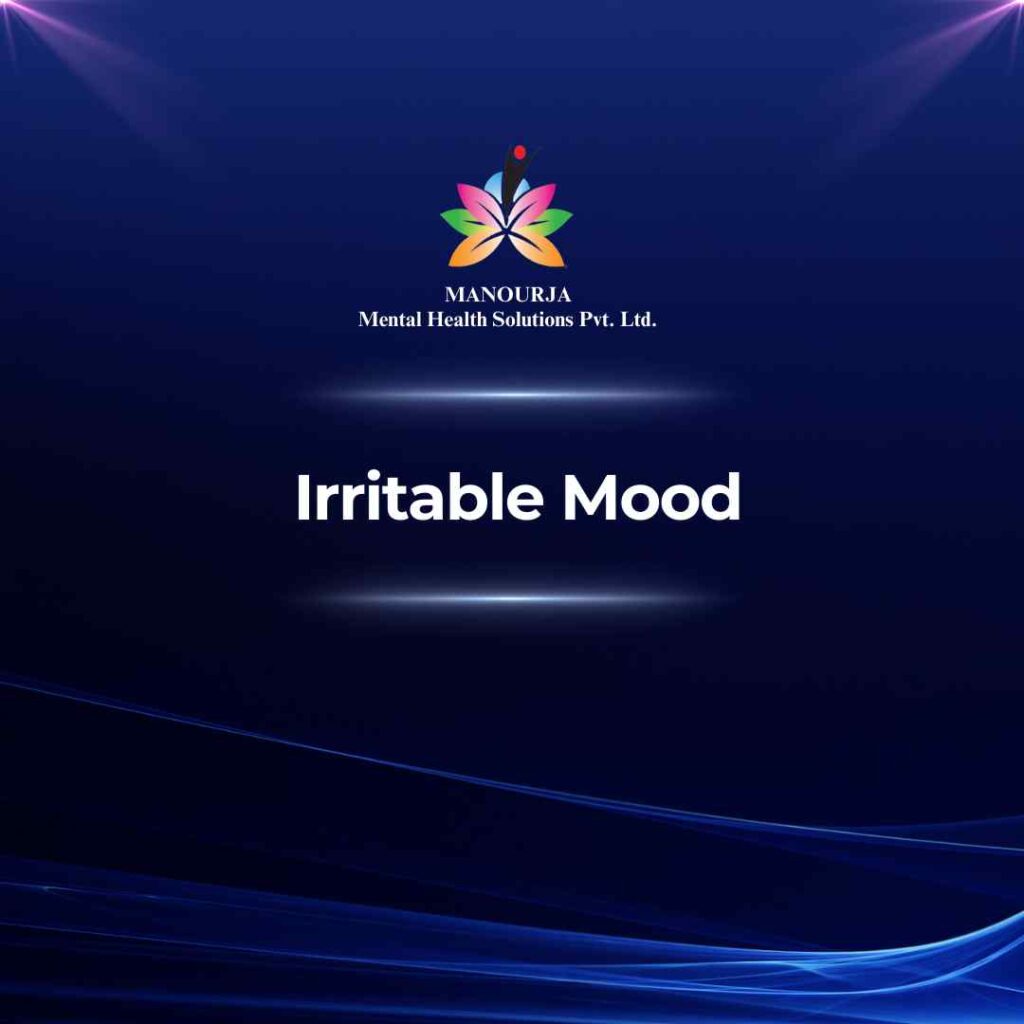Irritable Mood

An irritable mood is when someone feels easily annoyed or angered, often more than what the situation might typically cause. This state of mind can make a person quick to snap or react negatively to even minor inconveniences or frustrations. It’s like having a shorter fuse than usual.
As a Sign and Symptom of Mental Illness
An irritable mood can be a key indicator of various mental health issues. It might signal that someone is struggling with their emotions or that their mind is under stress. When irritability becomes frequent or intense, it can disrupt daily life and relationships, and it often goes hand in hand with other symptoms like anxiety, tiredness, or changes in sleep and appetite.
Mental Illnesses with “Irritable Mood” as a Symptom
Several mental health conditions feature irritable mood as a prominent symptom:
- Major Depressive Disorder (MDD): Often seen in children and teenagers, irritability can also be a sign in adults. It’s usually accompanied by sadness, a lack of interest in activities, and feelings of hopelessness.
- Bipolar Disorder: Both manic and depressive phases can include irritability. During manic episodes, people might feel extremely irritable along with being overly energetic and impulsive. During depressive episodes, irritability can pair with low energy and sadness.
- Generalized Anxiety Disorder (GAD): Constant worry and anxiety can lead to irritability because the person feels on edge and is easily frustrated by small things.
- Attention-Deficit/Hyperactivity Disorder (ADHD): People with ADHD might get easily irritated due to difficulties with attention and impulse control, making them frustrated with tasks requiring focus.
- Post-Traumatic Stress Disorder (PTSD): Individuals with PTSD often experience irritability and anger outbursts, especially when reminded of the traumatic event or during moments of heightened arousal.
- Borderline Personality Disorder (BPD): This disorder can involve intense mood swings, including periods of irritability, often triggered by relationship stress or perceived rejection.
- Intermittent Explosive Disorder (IED): This condition involves sudden episodes of extreme anger and aggression, with irritability being a common feeling in between outbursts.
- Substance Use Disorders: Withdrawal from drugs or alcohol, or the effects of these substances, can cause irritability as the body and brain react to the changes.
- Premenstrual Dysphoric Disorder (PMDD): Severe irritability, anger, and mood swings occur in the days leading up to menstruation and are more intense than typical premenstrual symptoms.
Managing and Treating Irritable Mood
Dealing with irritability often requires a mix of approaches:
- Therapy: Techniques like cognitive-behavioral therapy (CBT) and dialectical behavior therapy (DBT) help people understand and manage their irritability by teaching coping skills and addressing underlying issues.
- Medication: Antidepressants, mood stabilizers, antipsychotics, and anti-anxiety drugs can help regulate mood and reduce irritability.
- Lifestyle Changes: Regular physical activity, proper sleep, and stress management practices like mindfulness or meditation can help stabilize mood.
- Psychoeducation: Educating individuals and their families about irritability and its triggers can help them manage this symptom better.
Recognizing irritable mood as a symptom of mental illness is crucial for timely diagnosis and treatment, helping individuals live more balanced and fulfilling lives.
At MANOURJA, we believe in the transformative power of counseling. Our experienced therapists offer a safe and supportive space where you can explore your thoughts, emotions, and challenges. Through personalized counselling sessions, we’ll work together to develop coping strategies, build resilience, and achieve lasting positive change. Discover the path to a healthier, happier you with MANOURJA counselling services.
MANOURJA Rehabilitation Services
At MANOURJA, we’re dedicated to helping you in rebuild your life, after difficult times. Our rehabilitation services focus on understanding what you need to move forward, whether you’re recovering from addiction, trauma, or any psychological – social challenges. We create personalized plans, that are all about helping you, regain your strength and find hope again. With a caring team by your side, you’ll have the support to make real progress and take steps toward a brighter, healthier future.
